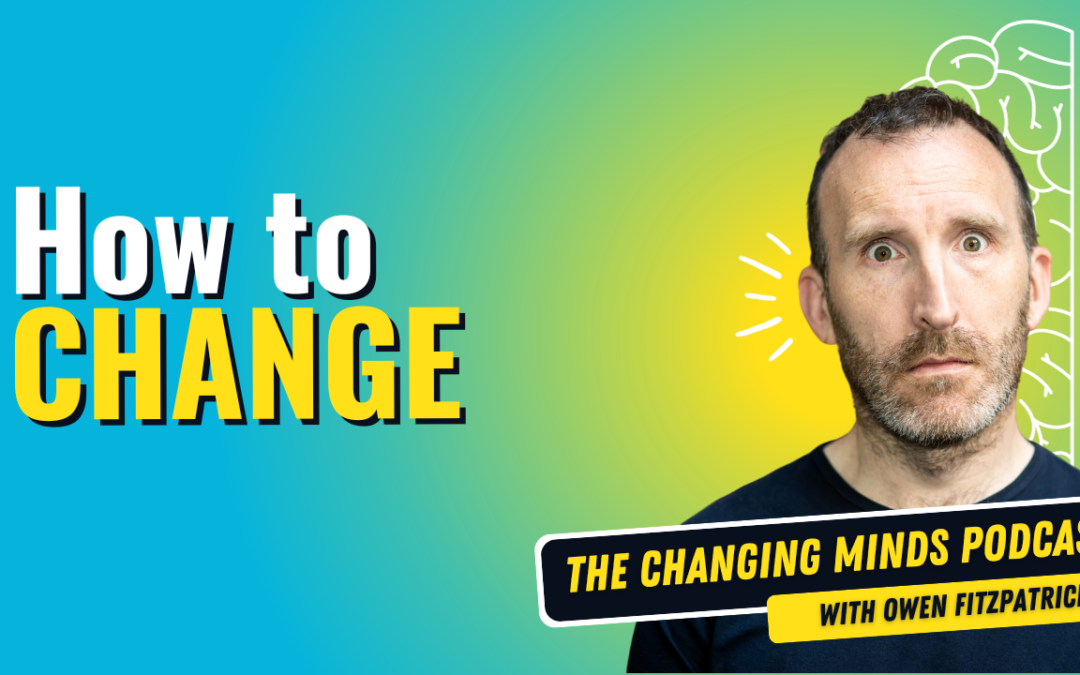Lisa Feldman Barrett is author of HOW EMOTIONS ARE MADE. It is a fascinating, deep and counter intuitive book that explores the latest research on how we create our emotions. Definitely worth checking out this episode and the book is you are interested in what happens in our heads when we feel.
Lisa Feldman Barrett, PhD, is a University Distinguished Professor of Psychology at Northeastern University, with appointments at Harvard Medical School and Massachusetts General Hospital in Psychiatry and Radiology. She received a National Institutes of Health Director’s Pioneer Award for her groundbreaking research on emotion in the brain, and is an elected member of the Royal Society of Canada.
Classical view of emotions as things we have as evolutionary necessities
Theory of Constructed Emotion… brain constructed emotion
People don’t always distinguish between anxiety and depression
EMOTIONAL GRANULARITY… accurately reading and describing your inner states
Emotions have a diverse population of facial movements that vary in different situations
EMOTIONAL CATEGORIES… same category different bodily responses
DEGENERACY… different brain regions can perform the same function and can create fear
Past experiences give meaning to present sensations through SIMULATION… brains guesses of what’s happening in the world organised into concepts
Your brain CONCEPTS are the collection of data you have about something. They give meaning to chemicals and experiences. EMOTIONAL CONCEPTS
Uses concepts to simulate outside world and inside your body
From sensory input and past experience your brain constructs meaning and prescribes action
Culture and concepts, emotions constructed, experience wires the brain
No one network contains an emotion. Different networks are all at play
The Brain is in a dark box… uses scraps of sensory inputs from body and from world to figure out what is going on
SIMULATION: when your brain changes the firing of its own sensory neurons in the absence of incoming sensory input
INTEROCEPTION: Brains representation of all the goings on inside of you
You predict what is going on outside the brain and inside the body… PREDICTION… PREDICTION ERROR…
Predict body energy needs… any movement of body has also movement in body
BODY BUDGETING REGIONS: send predictions to control internal environment
PRIMARY INTROCEPTIVE CORTEX: represents sensations inside body
Simulation uses body budget
Meeting people.. feeling supported and loved reduces activation in body budgeting and regulates it
Emotional Health: SLEEP, EATING, EXERCISE, MOVEMENT
EMOTIONAL CASCADING… Fewer neurons being used as we learn
PREDICTION: Emotional cascading in the opposite way… few neurones used then more and more
AFFECT: general feeling throughout day
Level of Arousal… Aroused Deactivated
Level of Valence… pleasant unpleasant
AFFECTIVE REALISM: The belief that one’s sense provide an accurate and objective representation of the world. When feelings make us think something is true. We experience what we believe. Best defence is CURIOSITY
Knowledge becomes your mental predictions
Brain uses less energy when BETTER CONCEPTS… more emotional granularity
Mastering Your Emotion
1. Keep your body budget in good shape
Achieve this is simple, yet not so if you don’t follow. It is pretty much all the good ol’ health care talks tell you to. Some examples are:
- eat healthy
- exercise (incorporate some mind-body exercise like Yoga, you will be surprised after a period of time)
- get enough sleep
- reduce time in noisy environment. get more greenery and natural light surroundings.
2. Becoming more “emotionally intelligent”
More specific categorization of emotion.
To be emotionally intelligent, you need to first identify what emotion your brain constructed. It is best to increases emotional granularity by obtaining more concepts. This means finer and more specific categorization of your experience .You can increase emotional granularity by learning new words or trying new perspectives to help you brain construct new concepts, such as a new book, movie, trips, unfamiliar foods.
3. Master emotion in the moment
- Move your body
- Change location or situation
- Re-categorize how you feel
- Deconstruct the Self
4. While dealing with others
- Abandon the idea that you know how others feel
- Choose words wisely
Podcast: Play in new window | Download






